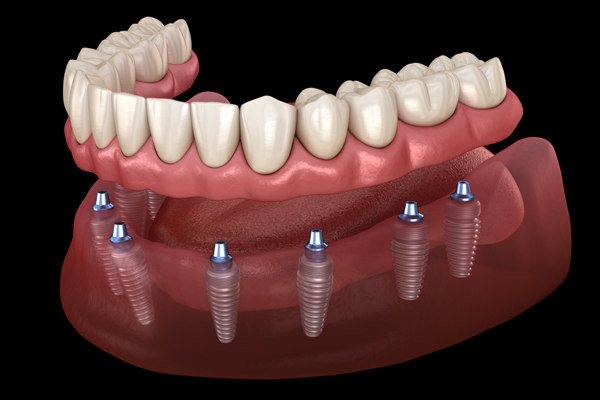General Dentistry FAQ: When Is a Dental Filling Recommended?

In general dentistry, dental fillings are one of the most common restorative procedures performed. They are used to address the damage done to teeth, most often as a result of cavities. Continue reading to find out more!
Understanding dental fillings
Below is a quick overview of dental fillings in general dentistry, including how they are placed and when they are recommended. This information may be helpful to review, especially for individuals who are not sure what the purpose of a filling is.
By definition
Dental fillings are a procedure performed in general dentistry to address cavities. A dental filling is a material made to seal a tooth that has an empty cavity in it as a result of the infected parts being removed. The most common materials used for fillings in general dentistry include composite resin, gold, silver amalgam, porcelain, or a combination.
Composite resin is typically used as a filling material for primary teeth, as they will later be replaced by adult teeth. Although the primary teeth are important and play a big role, composite resin does not last as long as other materials, which is why it is a good and affordable option for younger patients who will soon lose their teeth. However, the other materials are commonly used for adult teeth. Silver amalgam, on the other hand, has been controversial in general dentistry due to its unknown make-up. Regardless, general dentists have found that silver amalgam is actually harmless and a good material for fillings.
When they are recommended
In general dentistry, dental fillings are recommended when a cavity begins to form. A cavity is the result of an infection that has formed in or on a tooth. When a general dentist detects a cavity, a dental filling is likely the solution. However, what is important to know is that dental fillings are usually only recommended for minor to moderate-sized cavities. When a cavity has grown and is past the point of being addressable with a filling, other solutions may be required.
Other things to know
In some cases, general dentists may recommend a dental filling to address a crack or chip in a tooth. Of course, more moderate measures may be required depending on the size; however, fillings can be used for small imperfections. General dentists will likely use composite resin or porcelain as these both appear white in color, making it difficult to detect.
It is good to know that dental fillings do not always last forever. Proper care and oral hygiene are required in order to make them last. Otherwise, a replacement may have to be performed, if not a completely new treatment.
Find out more
When wanting to learn more about dental fillings in general dentistry, it is best to consult with professionals! Any questions or concerns about the process can be appropriately addressed, and an evaluation can be performed. To learn more or to get scheduled for a consultation, reach out today.
Request an appointment here: https://sexton-dental.com or call Sexton Dental at (740) 363-2080 for an appointment in our Delaware office.
Check out what others are saying about our dental services on Yelp: General Dentist in Delaware, OH.
Recent Posts
General dentists provide essential care to support oral health at every age, including well into adulthood and throughout the golden years. The goal is to help keep the smile in good shape so that it stays healthy, comfortable, and functional. Dental professionals can also address age-related oral health concerns, keeping you on track for a…
Understanding the key differences between a dentist and an orthodontist can help patients determine which specialist they need for their oral health care. While both professionals focus on maintaining and improving oral health, their roles, training, and areas of expertise differ significantly. A dentist typically handles general dental care, while an orthodontist specializes in diagnosing…
You might want to head to a general dentist if you find yourself dealing with a cavity. Cavities are tiny holes that form on teeth because of tooth decay. Acids created by oral bacteria eat away at teeth surfaces, creating those tiny holes. Other symptoms include reoccurring toothaches, increased sensitivity to hot and cold foods,…
A general dentist performs most of the treatments commonly used in dentistry. These oral professionals spend most of their time performing preventative treatments, like tooth cleanings, but they also perform more complex treatments, like root canals. A general dentist also serves as an educator, teaching patients how to properly take care of their teeth and…


